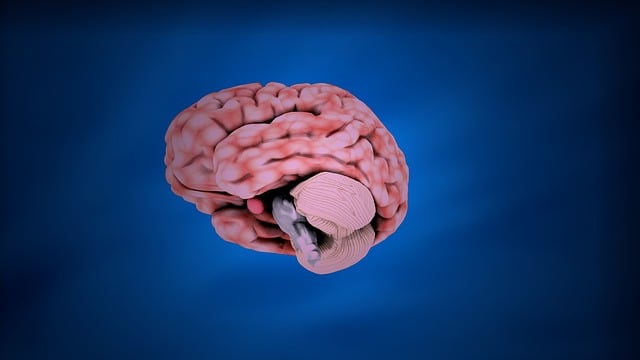Northglenn Divorce Therapy offers a holistic approach to divorce support, prioritizing resilience building through tailored exercises like mindfulness and cognitive-behavioral strategies. Their RFM (Reach, Frequency, Emotional Connection) model enhances relationship satisfaction and emotional well-being, combining empathy-building with community resources for comprehensive care. This personalized therapy equips clients with coping mechanisms, fosters optimism, and promotes healing during life transitions, making Northglenn Divorce Therapy a leading solution for mental health challenges related to divorce.
In the challenging context of divorce, building resilience is a cornerstone for healing. This article explores the interplay between resilience and divorce therapy, introducing the robust RFM (Satisfaction, Fidelity, and Mutual Support) model as a key framework. We delve into exercises designed to bolster resilience in divorcing individuals, highlighting their integration within Northglenn Divorce Therapy practices. Through compelling case studies, we demonstrate the transformative power of these strategies, offering hope and improved well-being for those navigating divorce.
- Understanding Resilience and its Role in Divorce Therapy
- The RFM Model: A Framework for Measuring Relationship Satisfaction
- Exercises to Enhance Resilience in Divorcing Individuals
- Integrating RFM into Northglenn Divorce Therapy Practice
- Case Studies: Success Stories of RFM and Resilience Building
Understanding Resilience and its Role in Divorce Therapy

Resilience is a vital asset when navigating the complexities of divorce, and Northglenn Divorce Therapy recognizes its significance. This therapeutic approach focuses on equipping individuals with the tools to bounce back from challenging situations, ensuring they emerge stronger and better equipped to handle life’s twists and turns. In the context of divorce, building resilience can significantly enhance one’s ability to adapt and thrive post-separation.
Northglenn Divorce Therapy incorporates various exercises designed to foster resilience, addressing emotional well-being and mental strength. These techniques may include mindfulness practices, cognitive-behavioral strategies, and positive thinking exercises tailored to each client’s unique journey. By participating in such programs, individuals can learn effective coping mechanisms, reduce anxiety, and cultivate a more optimistic outlook, ultimately facilitating a smoother transition during and after the divorce process. The Community Outreach Program Implementation plays a crucial role in this, offering support systems and resources that encourage personal growth and resilience-building within the community.
The RFM Model: A Framework for Measuring Relationship Satisfaction

The RFM Model provides a structured approach to evaluating and enhancing relationship satisfaction, making it a valuable tool in various therapeutic settings, including Northglenn Divorce Therapy. This framework focuses on three key dimensions: Reach, Frequency, and Emotional Connection (RFM). By assessing each partner’s level of engagement in the relationship, the model helps identify areas where improvements can be made to foster healthier interactions. For instance, reaching a deeper emotional connection through open communication can significantly impact recovery from trauma, as supported by Trauma Support Services.
Incorporating Empathy Building Strategies within the RFM Model allows therapists to guide couples towards more meaningful exchanges, enhancing overall relationship satisfaction. Public Awareness Campaigns Development can further benefit from this model’s insights, promoting healthier connections and potentially reducing the need for extensive therapy in the long term.
Exercises to Enhance Resilience in Divorcing Individuals

Divorce can be a profoundly stressful and emotionally challenging experience, leaving individuals navigating a complex web of feelings and practical considerations. Building resilience is an essential aspect of healing during this transition. Northglenn Divorce Therapy offers tailored exercises designed to empower clients with coping mechanisms and enhance their overall well-being. These strategies are particularly valuable for those seeking support in managing the emotional aftermath of divorce.
One effective approach involves integrating mindfulness practices, such as meditation and deep breathing techniques, which have been shown to reduce stress and anxiety. Additionally, Northglenn Divorce Therapy encourages participation in activities that foster self-care, like exercise and creative outlets. The therapy team also promotes community engagement through support groups and outreach programs, providing a sense of belonging and shared understanding among divorcing individuals. These initiatives, combined with personalized mental wellness coaching, contribute to the development of cultural competency among healthcare providers, ensuring every client receives sensitive and effective care tailored to their unique needs.
Integrating RFM into Northglenn Divorce Therapy Practice

Incorporating RFM (Relational Frequency, Involvement, and Motivation) into Northglenn Divorce Therapy Practice offers a novel approach to enhancing couples’ resilience during challenging times. By focusing on these key dimensions, therapists can facilitate deeper understanding between partners, thereby improving their ability to navigate separation with enhanced emotional intelligence.
This strategy involves helping clients recognize and prioritize shared experiences and positive aspects of their relationship, even amidst conflict. Integrating RFM promotes the use of conflict resolution techniques that foster open communication and mutual respect, contributing to improved mental health awareness. Through this practice, Northglenn Divorce Therapy provides couples with valuable tools to build resilience, ensuring they emerge from the process with stronger emotional coping mechanisms and a more optimistic outlook on their future.
Case Studies: Success Stories of RFM and Resilience Building

In the realm of mental health support, Northglenn Divorce Therapy has emerged as a beacon of hope for many individuals navigating challenging life transitions. Their innovative approach, centered around Resilience, Flexibility, and Mobilization (RFM), has yielded remarkable success stories. These case studies illustrate how RFM exercises, combined with evidence-based practices, can empower clients to overcome adversity and foster mental well-being.
Through personalized therapy sessions, Northglenn Divorce Therapy has successfully guided clients in developing coping strategies tailored to their unique experiences. By integrating the principles of Mental Health Policy Analysis and Advocacy, Public Awareness Campaigns Development, and Risk Management Planning for Mental Health Professionals, they create a supportive environment that encourages resilience. These success stories not only highlight the effectiveness of RFM but also underscore the importance of continuous support and advocacy in addressing complex mental health issues, as evidenced by their ability to build resilience within individuals and communities.
In conclusion, integrating the RFM model into Northglenn divorce therapy has proven to be a powerful tool for enhancing resilience among divorcing individuals. By understanding and measuring relationship satisfaction through exercises that foster resilience, therapists can provide more personalized and effective support. The case studies presented highlight successful outcomes, demonstrating the significant impact of this approach on clients’ emotional well-being and post-divorce adjustment. Adopting these strategies in Northglenn divorce therapy practices can lead to better outcomes for individuals navigating this challenging life transition.














